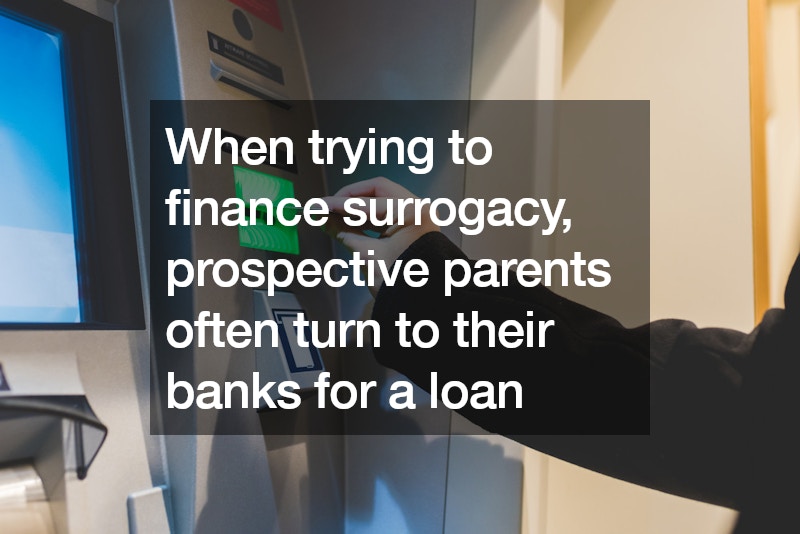
If you’ve been unsuccessful in your efforts to conceive a child, you may decide to use a surrogate to carry your child. One primary concern you may have is the cost of a surrogacy. According to Investopedia, the average cost of surrogacy in the U.S. is $100,000. According to Placid Way, the cheapest country for surrogacy is Mexico.
Using a Friend as Your Surrogate
Because of the financial hurdle, you may wonder, “Can a friend be a surrogate for free?” In most states, you can legally arrange for a friend to be a surrogate, but the prospective parent will still be responsible for medical expenses. To protect both parties, you should work with a family law attorney, since your ability to parent your child will require adoption.
Financing Your Surrogacy Process
Sometimes, you may need to look for someone who can be both an egg donor and a surrogate. If you wonder about the combined cost of egg donor and surrogacy, according to Family Equality, this would total $200,000 to $250,000. When trying to finance surrogacy, prospective parents often turn to their banks for a loan. It may interest you to know some organizations that specialize in financing surrogacy.

Bringing a child into this world can be a truly wonderful thing. After all, there is no greater joy than becoming a parent for a great many people. Parenthood can bring together so many marvels of life and so many joys even as it brings its challenges. But for many people, the process of actually getting pregnant is something of a mystery, veiled and unclear. Fortunately, this article will provide what you need to know about getting pregnant and why you likely do not need to worry.
For one thing, it takes longer to get pregnant than you might realize. In fact, healthy couples can actually take up to one full year of trying to conceive before actually having any success in the endeavor. For healthy people between the ages of 29 and 33, the chance of conceiving naturally on a month to month basis is really never higher than a mere 25% – and is sometimes as low as 20%. Therefore, it is normal for the process of conception to take some time.
If you’re still well within your fertile years, there is likely no cause for concern if the process of conception is taking a bit longer than anticipated. For while women are most fertile and able to conceive during the still incredibly young years of 20 and 24 – during which most women are not yet ready to become a parent and get pregnant – fertility levels remain high all through one’s twenties and only begin to wane at the age of 30. Even after the age of 30, it will be relatively easy to conceive until the next drop off in fertility occurs at about the age of 35 (and after this point, any pregnancy that occurs will be known as a geriatric pregnancy). Once women hit the age of 40, there is an only about 40% chance of conceiving naturally.
Therefore, women of a more advanced maternal age will likely need to visit a fertility clinic in order to get some help in the process of having a baby. Of course, there are other reasons that a fertility clinic might be necessary. For one thing, various reproductive disease, ranging from endometriosis to PCOS, can impede fertility. So too can various environmental factors. And in some cases, there isn’t really a reason why a couple cannot conceive, they just can’t seem to get pregnant on their own. Fortunately, going to a fertility clinic can help quite tremendously indeed.

At a fertility clinic, you will have a chance to speak with a fertility expert, someone that your usual doctor has recommended for you in most cases. A fertility doctor can assess your fertility as well as get to the root of any cause behind your infertility as well. For this reason, going to a fertility clinic can often be far more ideal than going to a regular clinic of gynecologist that doesn’t specialize in matters of fertility and the reproductive system in the way that a fertility clinic will.
Fortunately, there are steps that can be taken to aid in the process of reproduction at just about any given fertility clinic out there. And a fertility clinic and the doctors who work there will likely be able to devise a plan of action for treating your infertility as quickly as is possible. For instance, there are a number of infertility medications out there that can prompt ovulation in women who might not be ovulating naturally. These medications can be quite key indeed for getting pregnant – and might even be all that a couple needs to make it happen. In other cases, infertility procedures such as IVF – in vitro fertilization – might be needed instead. And in recent years, IVF has had a very high success rate indeed.
Having fertility issues and even diagnosed infertility can be a very hard thing to come to terms with, if you are able to at all. However, many people are able to find success conceiving with the help of a skilled fertility clinic and fertility doctors. From lifestyle changes to medication to IVF treatment, there are many ways that the process of conception can be helped along.
Recent Comments